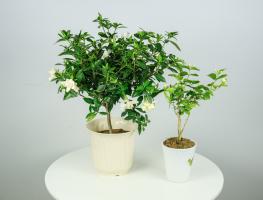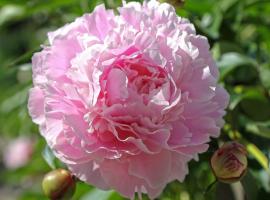Can You Water Outdoor Plants with Softened Water?
If you have a water softener installed in your house, you might be wondering whether you can use the softened water to water your outdoor plants. Water softeners remove minerals like calcium and magnesium from hard water and replace them with sodium. While this process is beneficial for your indoor plumbing, it can have an impact on your plants. In this article, we’ll examine whether you can water outdoor plants with softened water, and what the potential risks and benefits are.
The Benefits of Softened Water for Plants
Water softeners can help reduce the amount of chlorine, chloramines, and other chemicals that may be found in tap water, which can be beneficial for your plants. Softened water also contains less minerals than hard water, which in turn can help prevent algae growth and scale buildup. Some plants, such as gardenias and hydrangeas, prefer soft water, so using softened water may be an advantage for these types of plants.
The Potential Risks of Using Softened Water for Plants
While softened water can have some benefits for your plants, it’s important to be aware of the potential risks as well. One main problem with using softened water is that the sodium content in the water can damage soil structure and negatively impact plant growth. Softened water can also lead to an increase in pH levels, which can affect the growth of some plants. Finally, excess sodium can also lead to salt accumulation in soil, which makes it harder for plants to absorb adequate amounts of water and nutrients.
What Types of Plants Are Affected By Softened Water
Some plants are more sensitive to the effects of softened water than others. Acid-loving plants such as azaleas, rhododendrons, and camellias could suffer from exposure to excess sodium. Tomato plants, peppers, and other vegetable plants can also be negatively affected by softened water due to the increased salt content. It’s important to research the type of plant you have in order to determine whether it can tolerate softened water.
Alternatives to Softened Water for Plants
If you’re concerned about the effects of using softened water on your plants, there are alternatives you can consider. Rainwater is a great option because it is free of chemicals and minerals, and has a pH level that is close to neutral. You can also use tap water that has not been treated by a water softener, and allow it to sit for 24 hours to allow any chlorine or other chemicals to evaporate. This will provide your plants with a less harsh source of water.
Conclusion
While it may be tempting to water your outdoor plants with softened water, it’s important to remember that this can have both benefits and risks. The decision ultimately depends on the type of plants you have and their sensitivity to excess sodium and/or salt accumulation. If you’re unsure whether your plants can tolerate softened water, it’s best to err on the side of caution and use alternative water sources instead.

 how many times do yo...
how many times do yo... how many planted tre...
how many planted tre... how many pine trees ...
how many pine trees ... how many pecan trees...
how many pecan trees... how many plants comp...
how many plants comp... how many plants can ...
how many plants can ... how many plants and ...
how many plants and ... how many pepper plan...
how many pepper plan...































